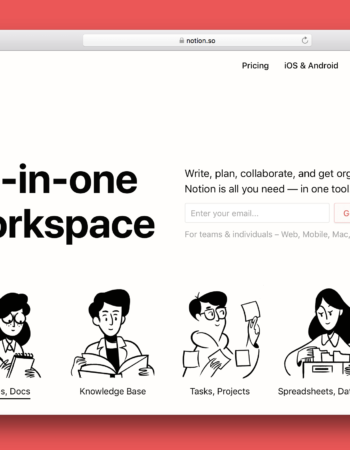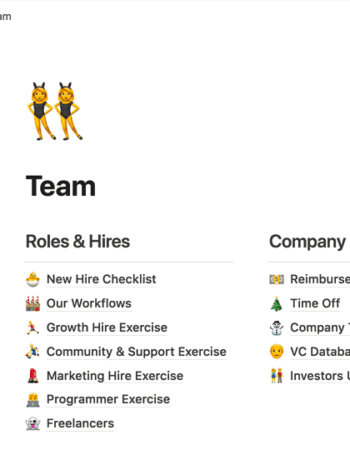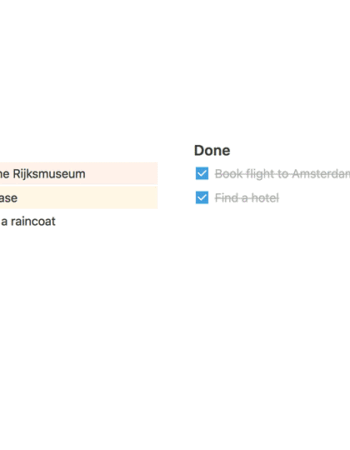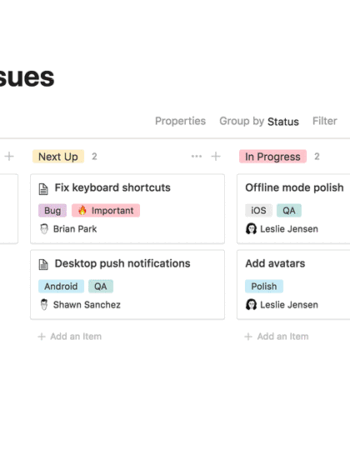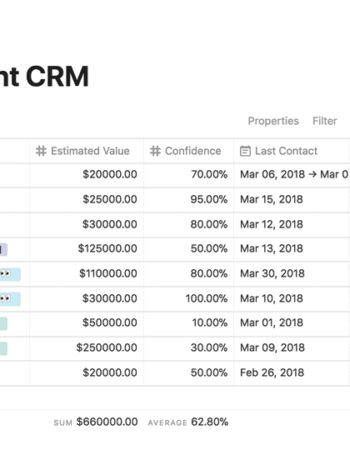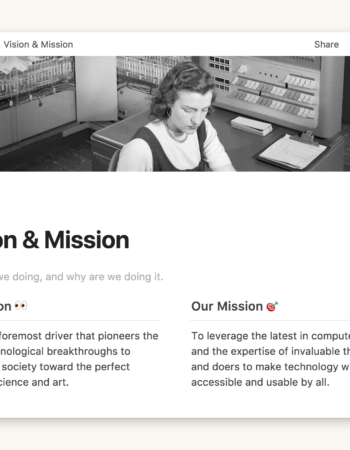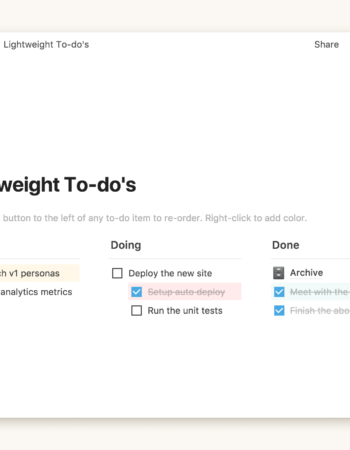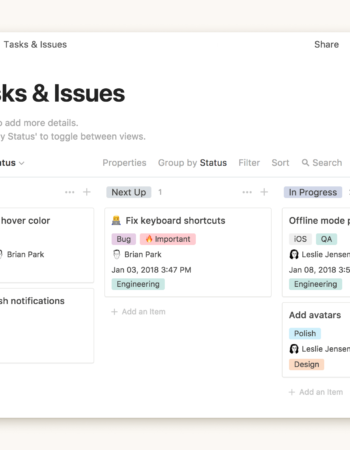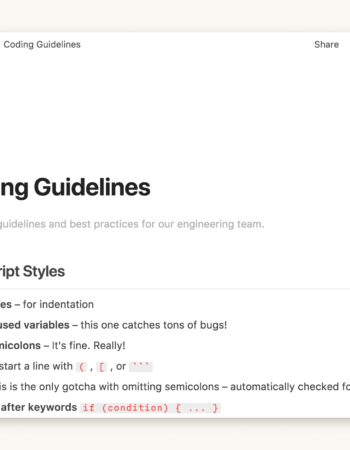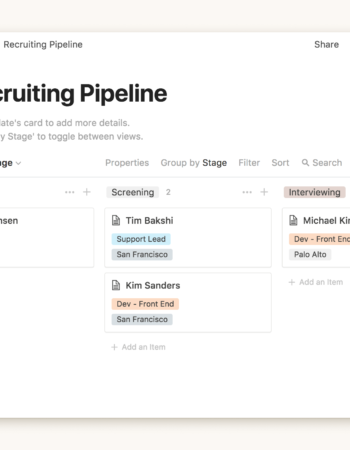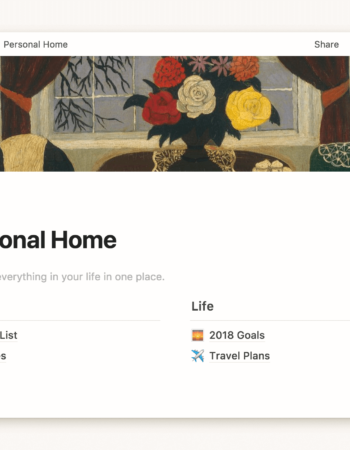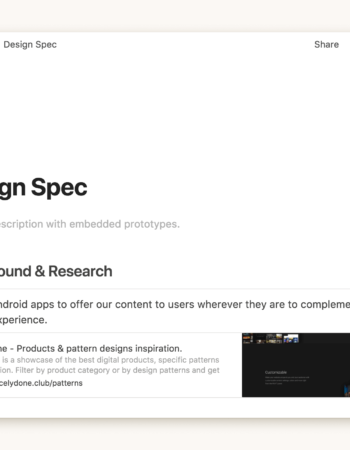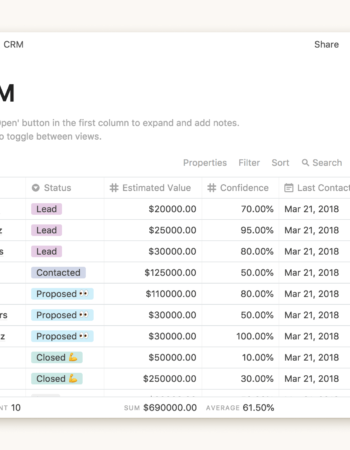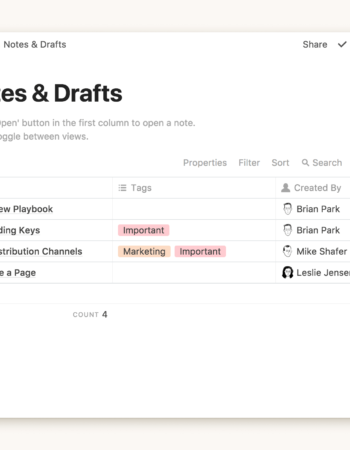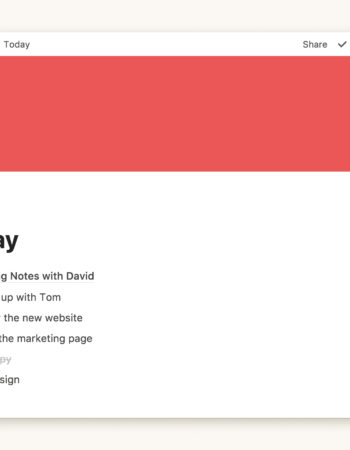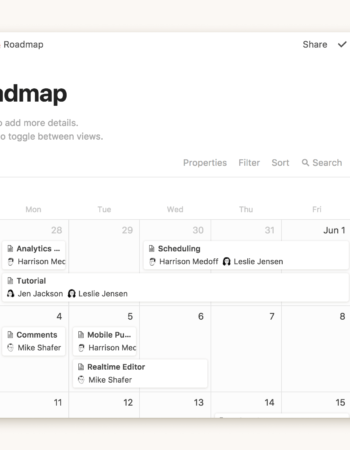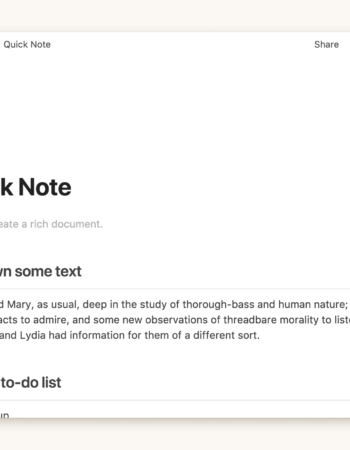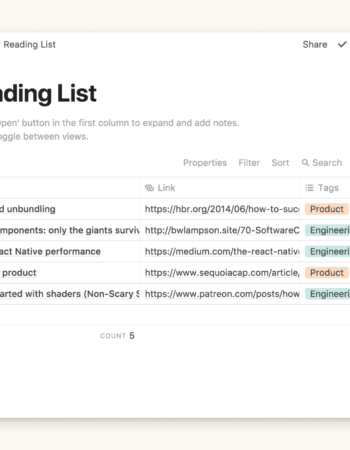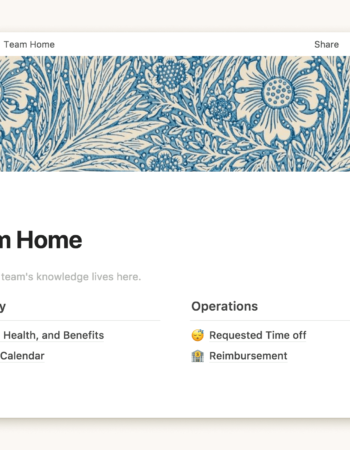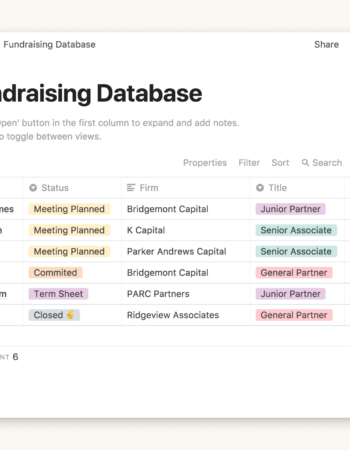This is an affiliate link
| Vendor | Notion Labs, Inc. |
Notion is a multifaceted productivity and organizational tool that has gained widespread acclaim for its unique approach to task and knowledge management. It’s particularly popular among teams and individuals who value flexibility and customization in their workflow tools.
Versatility and Customization:
Notion stands out for its extraordinary versatility and customization options. It serves as an all-in-one workspace where users can create and manage tasks, notes, databases, and wikis. The ability to combine different types of content — text, images, databases, and more — in a single page makes Notion extremely adaptable to various needs. This flexibility allows it to be used for a wide range of applications, from project management and note-taking to creating knowledge bases and personal journals.
User Interface and Experience:
The user interface of Notion is clean and minimalistic, yet powerful. While it might take some time for new users to fully grasp its capabilities, once familiar, it allows for the creation of highly customized and complex layouts. Users can create pages and sub-pages, and embed a variety of content types, including tables, kanban boards, calendars, and lists, all within the same workspace.
Collaboration Features:
Notion is also a strong tool for collaboration. It allows multiple users to work on the same page simultaneously, making it suitable for team projects and collaborative workspaces. The tool supports comments, @mentions, and sharing capabilities, which enhances team communication and project management.
Integrations and API:
While Notion initially lagged in terms of integrations, recent updates and the introduction of an API have expanded its capabilities to connect with other tools and services. This development opens up more opportunities for workflow automation and data synchronization across different platforms.
Knowledge Management:
One of Notion’s unique selling points is its robust knowledge management capability. It’s ideal for creating internal wikis, storing company documentation, and organizing resources in a centralized and accessible manner. This makes it an invaluable tool for onboarding, training, and resource-sharing within teams and organizations.
Pricing and Accessibility:
Notion offers a free version with basic features, which is often sufficient for individual users and small teams. Its paid plans provide more advanced features, including increased storage and enhanced collaboration tools. The tool is accessible via web browsers and has dedicated apps for Windows, macOS, iOS, and Android, ensuring availability across multiple platforms.
Potential Limitations:
For users seeking a straightforward task management or note-taking tool, Notion’s extensive range of features and customization options can be overwhelming. Its learning curve is steeper compared to more simplistic tools. Additionally, while it offers a wide range of functionalities, it may not replace specialized tools in areas like advanced project management or comprehensive database management.
Conclusion:
In summary, Notion is an all-encompassing workspace that excels in customization, collaboration, and knowledge management. Its flexibility makes it suitable for a wide array of uses, from project management to content creation and personal organization. While its vast array of features can be daunting for new users, its potential to create a highly tailored and efficient workflow makes it a valuable tool for those willing to invest the time in mastering its capabilities.


